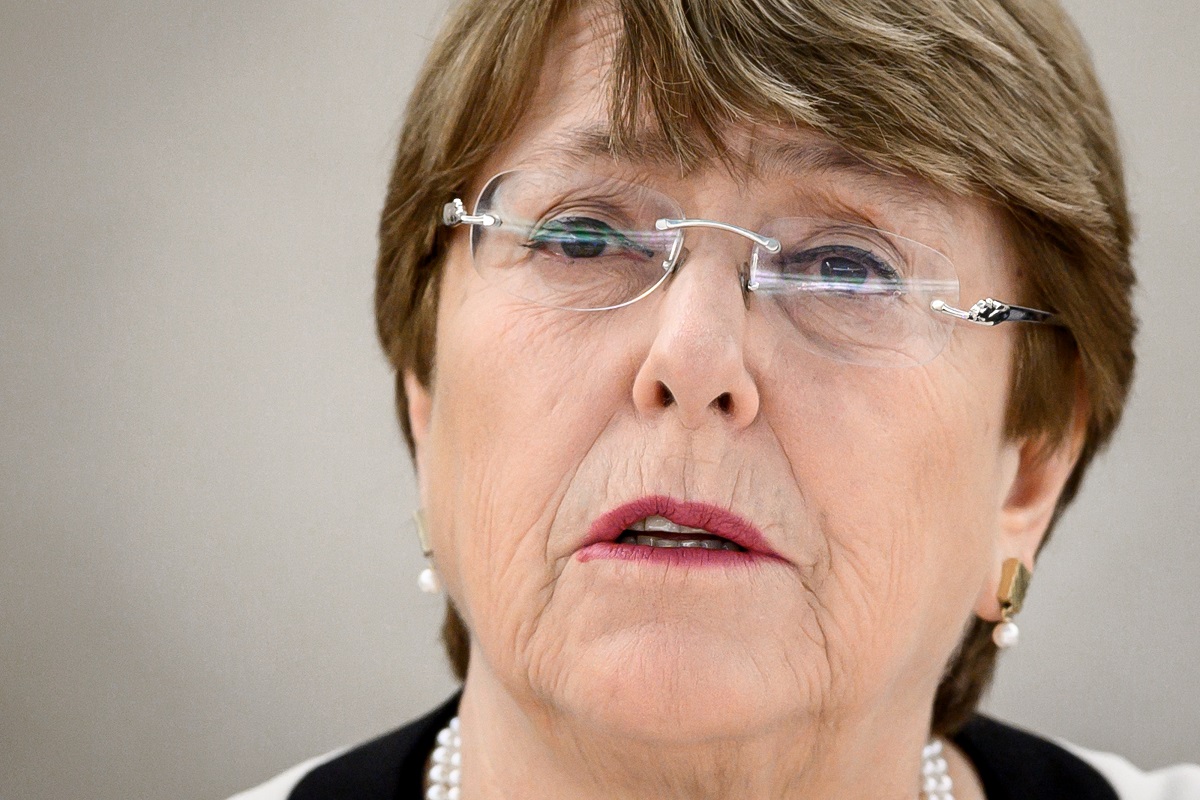Modi, German Chancellor Scholz for further deepening ties between two nations
PM Modi highlighted India's growth, saying, "This is the time and correct time to get involved in India's growth story," during his address.
Ms Bachelet has expressed concern over the fact that the demands of citizens protesting against inequality are being met by “violent and excessive use of force, arbitrary detentions, torture and even alleged summary or extrajudicial killings” as in Venezuela, Sudan, Haiti and France ~ the last fountain-head of democracy.

United Nations High Commissioner for Human Rights Michelle Bachelet delivers her annual report before the UN Human right council members on March 6, 2019 in Geneva. (Fabrice COFFRINI / AFP)
The chief import of the annual report furnished by the UN human rights chief, Michelle Bachelet, is its grim projections pertaining to India. The prognosis is much the same for all or nearly most countries that are plagued by growing inequality ~ almost a global phenomenon ~ over income, wealth and access to resources and justice. Ms Bachelet’s report has few bouquets to offer to successive dispensations in this country, and two months before the general election it reflects dismally on the incumbent government. The document, which has been advanced to the UN Human Rights Council in Geneva, is remarkably explicit on the point that the country’s “divisive policies” ~ whether centred over the cow, the Kashmiris, or hate speech ~ could well undermine economic growth. She has made the point without delving into the discourse over growth and development, issues over which distinguished brains in economics have differed. She has clothed her findings with the high-minded lament that “narrow political agendas were marginalising vulnerable people in an already unequal society”. While the canker is endemic, the report calls for reflection given its special reference to India. She has hit the bull’s eye and the beating of the war-drum to the west and east of the Radcliffe Line has made the findings still more topical ~ “We are receiving reports that indicate increasing harassment and targeting of minorities, in particular Muslims and people from historically disadvantaged and marginalised groups, such as the Dalits and the Adivasis”. The report is riveted to the interests of minorities and class groups. While the data might appear to be generic on the face of it, recent developments have lent a subcontinental dimension to the report. Post the bedlam and butchery in Pulwama and Balakot, there have been assaults in Lucknow, for instance, on fruit-sellers from Kashmir. No less an expression of aversion has been the targeting of Kashmiris who are either studying or working outside the state. Official policy remains ever so divisive and direly deleterious has been its impact on the Indian economy. Ms Bachelet has expressed concern over the fact that the demands of citizens protesting against inequality are being met by “violent and excessive use of force, arbitrary detentions, torture and even alleged summary or extrajudicial killings” as in Venezuela, Sudan, Haiti and France ~ the last fountain-head of democracy. She has also criticised Israel over its blockade of Gaza. Her comment can be contextualised with the finding of UN experts, specifically that Israeli security forces might have committed war crimes and crimes against humanity while responding to weekly mass Palestinian protests along the Gaza-Israel border last year. Altogether, the UN report has highlighted the ferment in the world today, and the riveting reference to India is cause for alarm. The time for ‘acchhe din’ is not yet.
Advertisement